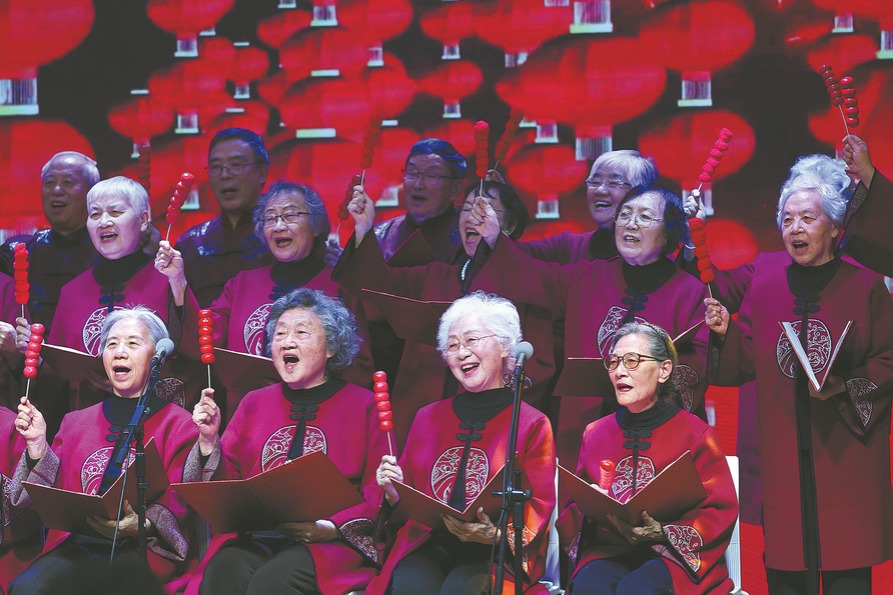Cooking up a communal storm


"The three-day holiday was too short of a time for us to return to our hometowns, so we decided to spend the festival together on campus," Huo said. "We all felt bored of the canteens and take-out food. The newly opened communal kitchen has given us a space to cook for ourselves."
The communal kitchen has quickly gained popularity with students and it is hard to find an unoccupied stove, especially during meal times.
"We had to book it a week in advance," Huo said. "Although few of us are good at cooking, we were all itching to have a try."
The six young students worked for nearly three hours in the kitchen to cook eight dishes.
"It was not as easy as we thought," she said. Due to lack of experience, she and her friends used the wrong wok, which ruined their first dish. After some guidance given by a canteen chef, they finally succeeded.
"The communal kitchen allows us to learn from professional chefs and gives us new experiences during our time at university," she said. "We all felt so excited when we smelt the mixture of mouthwatering aromas wafting in the air."
The time spent in cooking has also prompted them to communicate and cooperate more.
"A classmate from Fujian province cooked a local style fish that was really amazing. We had never tasted anything like it," she said. "It gave us quality time to chat and recall memories from home."
Huo added that the cost per person for the meal was less than 40 yuan, much cheaper than dining in restaurants.
"Compared with often unhealthy take-out food, most college students crave hometown-style dishes or their favorite specialties, but it's hard to find them in campus canteens," said Yi Guangcheng, director of the First Canteen. "The shared kitchen can help make their wishes come true."
"Meanwhile, it provides a platform to promote friendship and enrich social interaction. Delicious food is always a good bridge of communication," he said.
In addition to providing more convenience to the students, the communal kitchen also focuses on education, according to Ge Pengye, director of the university's food and beverage center.




































